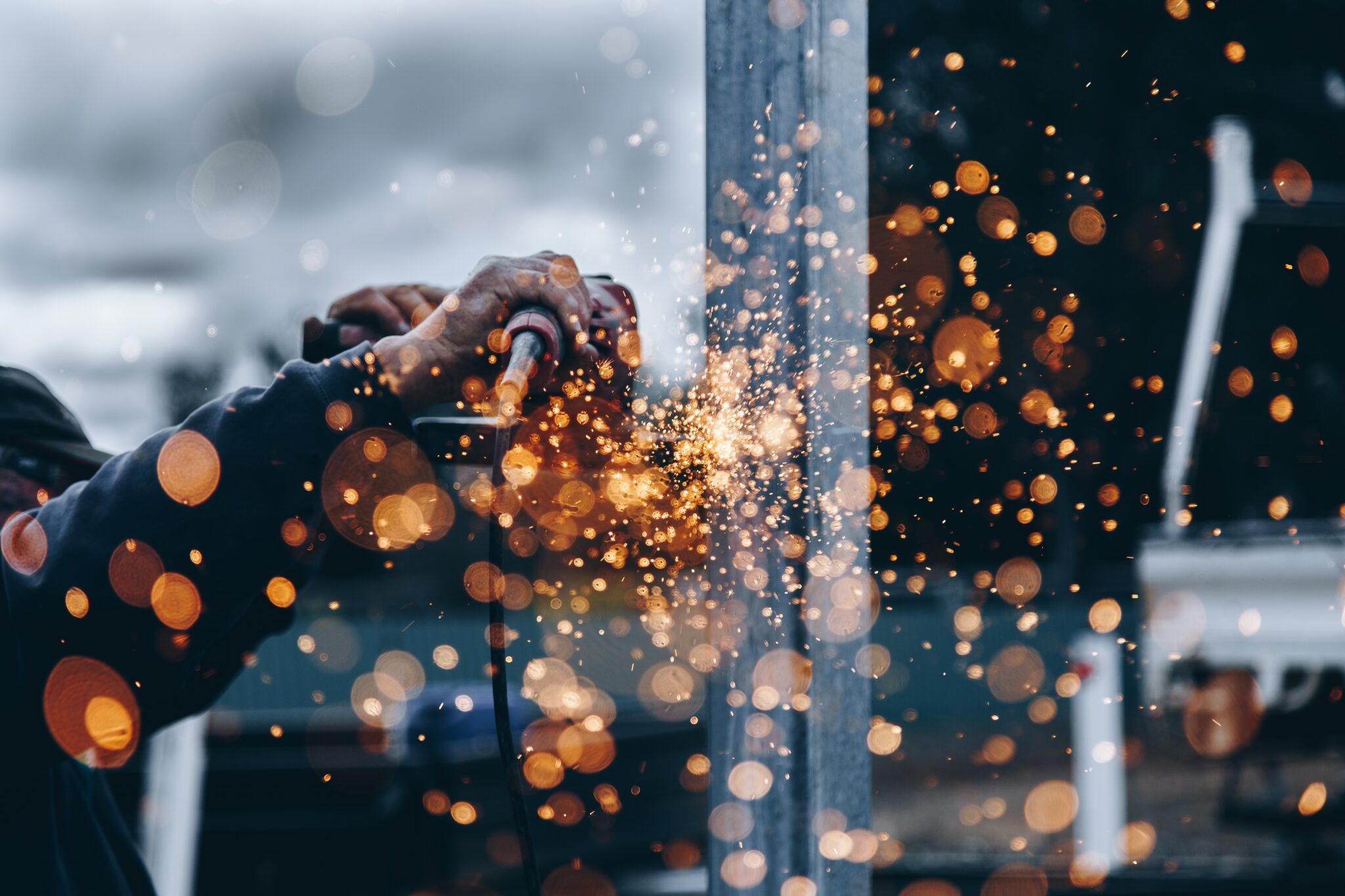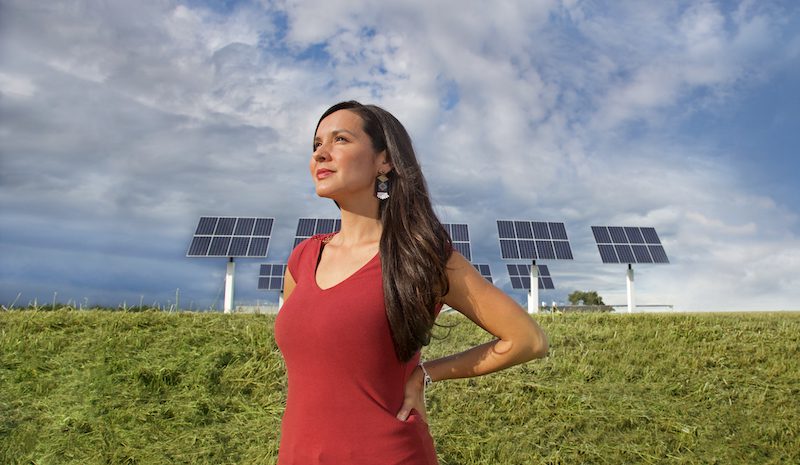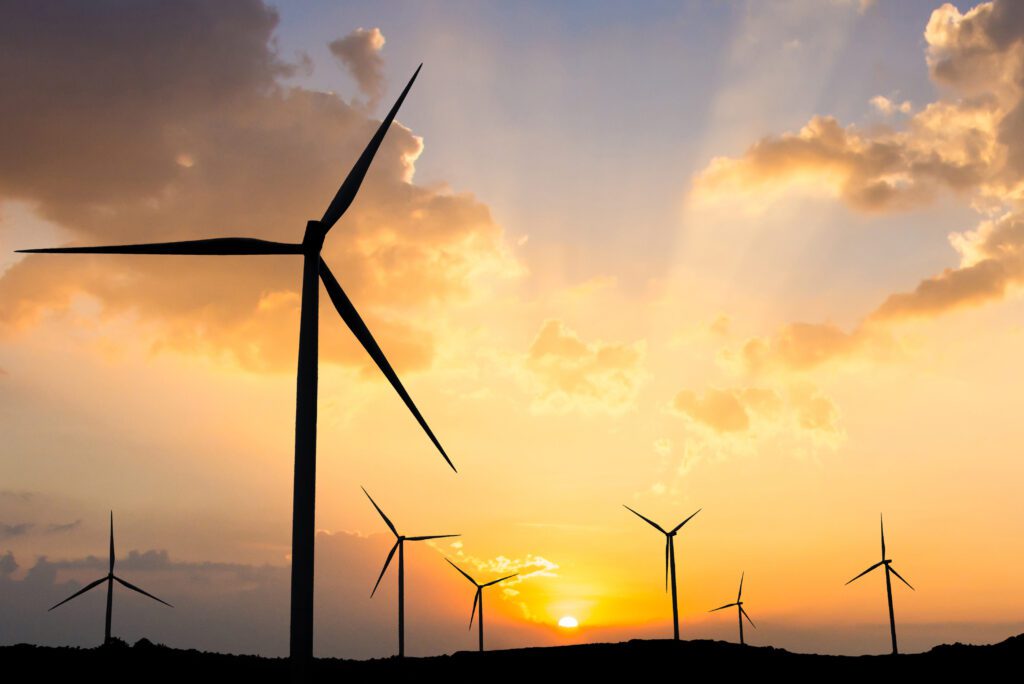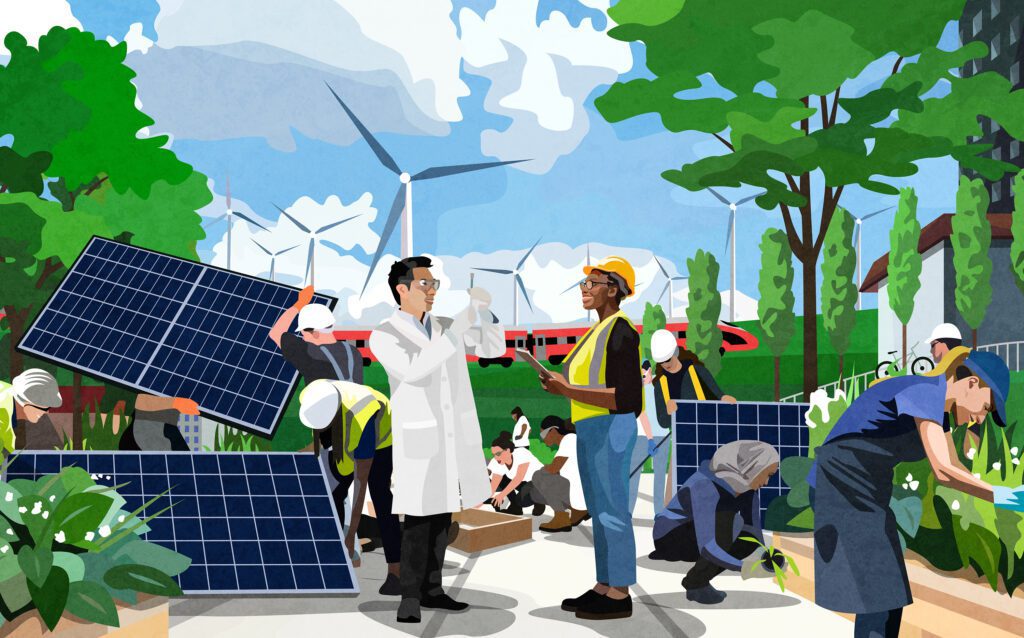At COP28, countries agreed to transition away from fossil fuels and accelerate action within the decade to achieve our global climate goals. Additionally, a new work programme, the Just Transition Work Programme (JTWP), was set up to find ways to make the transition equitable for all.
This welcome progress on climate change is an important signal for Canada to take note of; the world is transitioning away from one of our main exports.
Yet, federal and provincial governments and big polluters are denying the need to prepare workers and our economy for a transition away from the sector. Instead, they continue to bet our future on expanding oil and gas production.
Returning from COP28, I felt anxious. Canada is not ready for the shift. We are neither properly investing in new economic sectors to diversify our economy, nor are we properly supporting our workers and communities to prepare for the transition. Throughout the climate negotiations, I saw presentations from countries showing the policies and programs they already have in place – some for almost a decade – to make sure the transition away from fossil fuels is just. In Canada, we aren’t even able to use the term ‘just transition’.
Things have never been clearer: Canada needs to catch up in the shift away from fossil fuels, or it risks being left behind.
Parliament must quickly finish and pass the Sustainable Jobs Act
In June 2023, the government proposed its Sustainable Jobs Act, a law that legally commits the government to having a Minister, a dedicated agency and an advisory council to support the creation of sustainable jobs and advance the net-zero economy in Canada. The Act also commits the government to have an Action Plan for sustainable job creation, which it must report on every 2.5 years, and update every 5 years. This is a good plan, and a lot of countries further along in their just transition efforts have similar legislation and institutions.
Yet, the initial proposal had major gaps. First, it didn’t refer to Canada’s existing climate commitments, which meant there was no way of making sure the sustainable jobs created would advance our climate goals. Then, it was missing pieces to ensure transparency and accountability – for example guiding principles for the government to follow, or specific reporting requirements so those impacted by the transition know what is available to them. Finally, it lacked mechanisms to support regional and local transition efforts.
After a tumultuous ride through the Parliamentary process, many of those gaps were addressed, but some Members of Parliament used the last days of December to delay the progress of the Bill. Parliament resumes in late January, and it must make it a priority to pass the Act and send it to the Senate. Senators then have to study and pass it with no delay. This Bill sets up important ways for workers and communities to give input about how they want the energy transition to be managed, and politicians should stop getting in the way of that important process.
The plan needs to be backed with real funding to support workers and communities
Governments have not hesitated to make important investments in clean energy sectors, like the billions announced for new EV manufacturing plants. This is important and necessary, but money shouldn’t only flow to big corporations – workers and communities need a fair deal in the transition.
Public money should be going to retraining and upskilling programs for workers, whether for those who’ll stay in the same industry but need new skills or for those who’ll change sectors. Additional supports, like income support during transition periods, options for early retirement, or job centres that help match workers with opportunities, also need to be deployed.
Investments are also needed for the communities who rely on polluting industries for tax revenue or indirect employment – they should be supported in the short term to avoid service shutdowns, and in the long term to find new economic engines to power their communities. Throughout these investments, governments will need to consider equity, ensuring that groups historically excluded from economic opportunities have a fair shot in the clean economy.
The money going to corporations must also come with conditions: employers who don’t pay a fair wage or guarantee safe working conditions shouldn’t receive public dollars. Same goes for those who don’t respect Indigenous rights where they operate, or don’t respect environmental standards.
Governments must inform and engage impacted people
At COP28, I met a lot of people directly impacted by the transition, from workers and their unions to Indigenous communities. An overwhelming majority shared that they had to come to COP28 because they do not otherwise receive much information on what governments discussed there – even though they are directly affected! For the transition to be fair and orderly, governments and industries need to proactively share information with stakeholders. This is necessary to build trust, but it will also allow local communities to play a role in the transition, which will speed up our progress on climate action.
A recent report by Sacred Earth Solar highlights how Indigenous communities, aware of the risks of sticking to fossil fuels, have started their own projects to switch to cleaner energy. It dives into the cases of communities like Tla-o-qui-aht First Nation, which uses geothermal energy generation systems to heat homes in their community (discover their story here), or Kanaka Bar First Nation which used a small-scale run-of-the-river project to generate clean electricity for their people (discover their story here). More community-led clean energy projects should be encouraged, by providing information and resources to local communities – be they workplaces, neighbourhoods, Indigenous nations or entire municipalities!
The conversation around ensuring a just transition will continue on the international stage, especially now that countries agreed to meet twice a year through the Just Transition Work Programme. Yet, no one will do the work for us – in Canada that we need to decide whether we’ll be ready to seize the opportunity of the clean economy, or whether we’ll bear the consequences of our procrastination while the rest of the world powers ahead.








